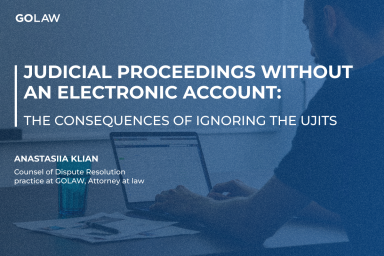Top 5 options for labor relations during quarantine
The quarantine and related restrictive measures have become a challenge for society as a whole. In particular, employers have to save money and make prompt decisions about their future working arrangements. So what are the most popular employee-employer relations during quarantine?
Remote work
The new legislation allows the employer to establish remote (home) work for employees during the quarantine period.
The key feature of remote work is that the employee performs it not on the employer’s premises, but at home or in another place of his choice using information and communication technologies.
Of course, not everyone can work at home. This option is mostly suitable for office employees whose “working tools” are personal computers and mobile phones. By the way, the employer must provide the employee with the latter, since the Labor Code (hereafter referred to as the Code) stipulates that it is the employer’s responsibility to provide the employee with the necessary work equipment.
When working remotely, employees allocate their working time at their discretion, and the rules of internal work order do not apply to them. In this case, remote work does not entail restrictions on the labor rights of employees and must be paid in full.
Part-time work
In order to save money, many employers are interested in establishing part-time work for employees, when remuneration is paid in proportion to the time worked.
The Code says that part-time work is an essential condition of work, and the employee must be informed by the employer two months in advance. However, this rule does not apply if part-time work is established at the request of the employee.
Therefore, in order to quickly limit the standard 8-hour working day to, for example, 4 hours, the employer must obtain the employee’s written consent, and only after that issue a relevant order.
In addition, employers can combine the two options and establish remote work on a part-time basis.
Idle time
Quarantine may result in the employer’s decision to suspend work — in other words, to declare idle time. The establishment of idle time is relevant for businesses whose activity has been directly forbidden by decisions of the state authorities: restaurants, cinemas, shopping centers and sport clubs.
Such a decision does not need to be agreed upon with the employees: An employer’s order stating the reasons and duration of idle time will suffice. Idle time can be established for the whole company, as well as for its individual divisions.
Until recently, disputes over payment during idle time have continued, but the latest changes to the Code clearly stipulate that idle time during the quarantine period is to be paid with at least two-thirds of the employee’s salary. However, it is necessary to pay attention to the collective agreement (if there is one at the enterprise): It may provide for another procedure for payment during idle time that is not the fault of the employee.
Paid leave
Some employers choose not to establish idle time at the enterprise, but to send their employees on leave.
In particular, during the quarantine period, an employee may exercise his or her right to paid leave that has not been used before. This can be either basic or additional annual leave (for example, leave for work in harmful and difficult working conditions). Employees who have children have the opportunity to take social leave, and those who have been involved in the war and the Revolution of Dignity are entitled to additional paid leave.
Paid leave is to be granted at the request of the employee by order of the employer. No later than three days before the start of the leave, the employee must be paid wages for the time of leave.
Leave without pay
Undoubtedly, this option is the most advantageous for the employer. However, just like in the case of paid leave, an employee cannot be forced to take leave without pay. Such leave requires the consent of both parties: submission of the leave application by the employee and execution of the relevant order by the employer.
The forced leave of an employee without pay can be regarded by the controlling authorities as a gross violation of labor legislation. The law provides for liability, including criminal liability, for such an action.
Previously, the duration of unpaid leave could not exceed 15 calendar days per year. However, recent changes to labor legislation allow the employer to provide the employee with such leave for the entire duration of the quarantine – certainly, with the consent of the employee.
Conclusions
To conclude, we would like to emphasize that no recent law envisages the abolition or mitigation of liability for violations of labor legislation. This means that, after the termination of the quarantine period, the employer will have to face full responsibility for violating labor legislation. Therefore, during quarantine, it is important to make all labor-related decisions in compliance with the legislative requirements.

Kateryna Tsvetkova
Partner, Litigation and Dispute Resolution practice, Attorney at law
- Contacts
- 31/33 Kniaziv Ostrozkykh St, Zorianyi Business Center, Kyiv, Ukraine, 01010
- k.tsvetkova@golaw.ua
- +38 044 581 1220
- Recognitions
- LEXOLOGY INDEX 2025
- The Legal 500 EMEA 2024
- Who's Who Legal 2022 - 2024
Sign up to be aware
New achievements are inspired by information. GO further, don’t miss out GOLAW news and legal alerts
Our expertise
-
- Antitrust and Competition
- Banking and Finance
- Compliance, Corporate Governance and Risk Management
- Corporate and M&A
- Criminal and White Collar Defence
- Defense in Anti-corruption procedures and regulations
- Labor and Employment
- Natural Resources and Environment
- Government Relations (GR)
- Insolvency and Corporate Recovery
- Intellectual property
- International trade
- Legal support of business and private Сlients in Germany
- Litigation and dispute resolution
- Private clients
- Real Estate and Construction
- Energy and Natural Resources
- Restructuring, Claims and Recoveries
- Martial Law
- Tax and Customs
-
- Agribusiness
- Aviation
- Chemical industry
- Engineering, Construction and Building Materials
- Natural Resources and Environment
- Financial institutions
- IT and AI
- Industry and manufacturing
- Healthcare industries, Life sciences and Pharmaceuticals
- Media, Entertainment, Sports and Gambling
- Retail, FMCG and E-Commerce
- Transport and Logistics
We use cookies to improve performance of our website and your user experience.
Cookies policy
Cookies settings







